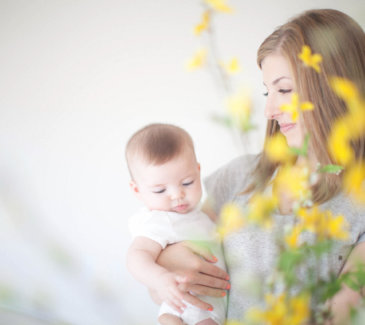Every parent says life totally changes the moment your first child is born. I can confirm that this is 10,000 percent accurate. My entire perspective on life and the world shifted upside down the moment my daughter entered the world in 2013 and only continued to change when my son was born in 2016.
Ever since they were born, I’ve felt this strong sense of purpose and calling to raise my kids to be generous, kind, and ultimately good human citizens of the world.
It’s important for me to counter the common narrative of our twenty-first-century culture and instill in my children a sense of understanding that the world does not, in fact, revolve around them.
Kindness, dignity, and respect
I want to help them, on their level, understand the privileges and advantages that have been afforded to them simply because of things like the color of their skin, the country they were born in, and even the time in history in which they were born.
I explain to them that these realities don’t make them better than anyone else—their lives should go beyond just treating everyone with kindness, dignity, and respect.
I want my children to use their voices to elevate the voices of others. I want them to know that “loving thy neighbor as thyself” goes much, much deeper.
At the end of the day, they are to use their inherent privileges to come alongside others who do not have such privilege in order to foster real, lasting community with people who look and think differently and to follow God’s call in Isaiah 1:17: “Learn to do what is good. Pursue justice. Correct the oppressor. Defend the rights of the fatherless. Plead the widow’s cause” (CSB).
Love God and love others
With everything going on in our world today, I’m reminded more than ever that it’s never too early to start cultivating a selfless, Christ-based mindset in our children. As Christ himself said, we were created to love God and love others—period.
As a family, we have approached these topics in a variety of ways—and there’s no one right way to do this. As a follower of Christ, as a mom, and as someone who strives to be more selfless each day, I’m constantly learning, adapting, and changing.
The important thing is starting. It is not about making excuses—it is about starting.
Three ways to cultivate a selfless mindset in your children
1. Have topical conversations early and often.
Starting at an early age, we have conversations with our kids (on their level, of course) about issues that other kids around the world are facing. We talk about things like religious persecution, hunger and starvation, systemic racism, human trafficking, and diseases.
When I say that we have these conversations on their level, I mean that we explain these complex topics in a way they can grasp and understand.
We certainly don’t want to frighten them, but, at the same time, we don’t sugarcoat things because kids around the world don’t have that luxury. These are realities that children around the world face daily, and they don’t have the ability to sugarcoat the things they endure.
We discuss the fact that kids die simply because they don’t have food to eat. We talk about the fact that kids are not able to go safely to their place of worship simply because of what they believe.
We talk about the fact that kids get sick (and can die) from diseases most of us could just go to a doctor and get a prescription for. We discuss the ways society can view other children (and grown-ups) differently because of the color of their skin.
We want them to realize life looks very different for many kids around the world. We discuss how we are no better than any other family anywhere around the world, and it’s our job to play a role in changing the systems that negatively affect other children in the US and abroad.
2. Read books that feature kids who don’t look like them.
This one is such an easy one that can make a big difference!
We believe it’s really important to model the behavior we want to see. We regularly read books that include stories about different cultures, different races, different backgrounds, and historymakers.
By reading these books together, our kids are able to visually see and hear the stories of men, women, and children around the world. Plus, these stories open the opportunity to have deeper conversations around these topics (again, on their level). It normalizes these conversations. We love it.
While there are a ton of books that we love, a few favorites are Wangari’s Trees of Peace, One Plastic Bag, and The Day You Begin.
3. Model sacrificial giving of time, talents, and treasure.
We talk all the time with our kids about the importance of giving generously and sacrificially.
From serving at church, serving in our community, going on mission trips, helping others in our neighborhood or friends/family in need, and giving financially—we talk about all these things with our kids in detail.
We talk about the spiritual gifts God has given us and how we are to serve others with those gifts, being faithful stewards of God’s grace in its various forms (1 Peter 4:10).
We start small by talking about being kind and generous to other kids at school. We perform random acts of kindness in our community. We give financially to organizations that are making a difference.
We sponsor children through Compassion International, and we regularly have our kids write letters to the children we sponsor! This is actually one of our favorite ways to instill global and heavenly citizenship in our children.
We are able to foster personal relationships with children in other countries, and we are able to learn from them and develop lasting and meaningful connections. This also gives us the incredible opportunity to learn about different countries and cultures and see God’s creative handiwork in action.
Progress over perfection
However you choose to shepherd your children and whatever ways you approach the concept of selflessness and kindness, it’s important to guide them in a way that they can see others and their place in the world through the eyes of Christ.
It’s not about perfection—it’s about progress. We as parents will mess this up. But when mistakes are made, we can model healthy growth for our children.
Real societal, global change starts at home. Change starts with us.



